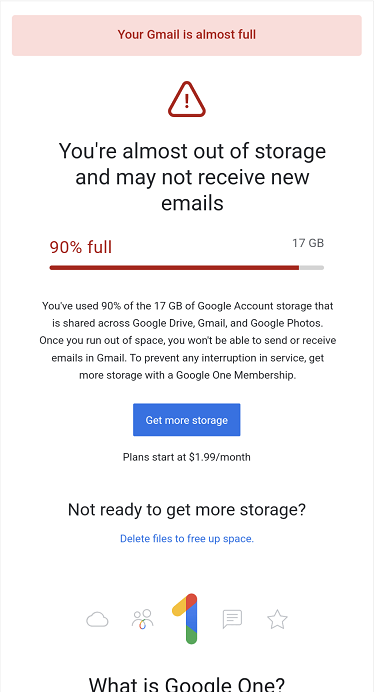
Twenty years ago today, when Gmail was still in public beta, I snagged an invite from @rhomsany—thanks again, Sir.
It’s hard to remember, but Gmail upended the prevailing stingy concept of personal email by offering what was an unfathomable amount of storage (1GB instead of the typical 10-15MB), and then said forget about filing and hunting for messages; just keep everything and use our world-class search. The press release positioned Gmail as being “built on the idea that users should never have to file or delete a message”.
Being early to the party, I got my surname name as my handle—although I’ve been punished for my hubris ever since with a steady stream of misdirected mail from the US, Germany, and Holland (Hallo __, ich bin nicht der Herr Berens, den Sie suchen. Grüße).
Otherwise I was very happy to have made the switch to Gmail as my primary personal email service. The product consistently improved with each passing year. It also became popular enough that having a Gmail account indicated you weren’t completely out of touch.
But as the years rolled by, messages piled on top of messages. Until I received this notification early 2022:

Notice the suggestion in blue font: Delete files to free up space. Hey, what happened to you’ll never need to delete an email again?
Several days before I celebrated my 18th Gmail anniversary I found myself subscribing to Google One…under duress. And as of today, just two years later, I’ve burned through 43% of my Google One storage.
I’m sure this wasn’t conceived as a bait-and-switch in 2004, but we’re all now waking up to the situation. Ezra Klein recently described this same problem, which caused him to ditch Gmail and join Hey in an effort to tack in a new direction with regard to his email management. I should probably do likewise.
Over time, in other areas of digital life I’ve tried to avoid platform risk:
But DIY email is harder. While I do use email from my own domain now, I’m running it through Gmail instead of hosting my own email server, the latter probably being the gold standard of tech independence. But then you run into the issue of deliverability where Gmail, Outlook, et al. assume you’re spam and just bin the emails you send. A conundrum.
No matter what the kids say, email is still the king of asynchronous communication (for now), and Gmail has had a good run…thanks, Google. I wonder what will take the place of email/Gmail in another 20 years?
— ᴘ. ᴍ. ʙ.